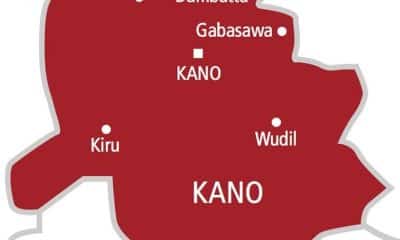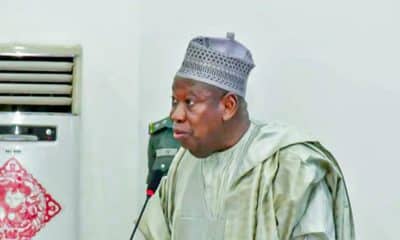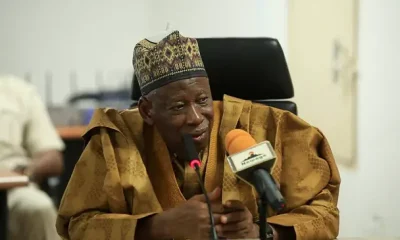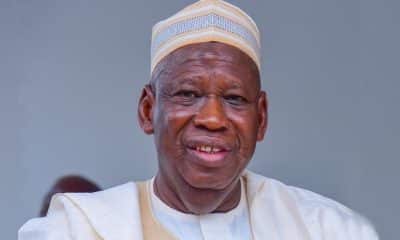Nigeria News
Gawuna vs Yusuf: Court Reserves Ruling In Kano Governor’s Appeal

The Court of Appeal sitting in Abuja has postponed its decision on the appeal by Kano State Governor, Abba Yusuf, who is contesting his removal by the Governorship Election Petition Tribunal.
The Tribunal on September 20 nullified the election of Yusuf by declaring 165, 663 of his votes were invalid.
Recall that a three-man panel of the Tribunal led by Justice Oluyemi Akintan Osadebay had, on 20th September 2023, sacked Yusuf after deducting 165,663 of his votes.
The tribunal held that the ballot papers were not signed nor stamped by the Independent National Electoral Commission.
Consequently, the tribunal declared the APC candidate the winner of the governorship election.
Dissatisfied with the judgment, Yusuf appealed against the tribunal’s verdict and urged the court to set aside the judgment.
At the hearing of the appeal on Monday, 6th November, the lead counsel for the appellant, Wole Olanipekun, urged the court to set aside the judgment of the lower court.
Olanipekun argued that the tribunal had created a new jurisprudence that departs from the precedent set by the appeal court and the apex court with its judgment.
The lead counsel submitted that it was the first time an election would be nullified based on non-stamping and signing of ballot papers.
He also held that the tribunal erred in referring to section 71 of the Electoral Act and citing decisions arising from the section.
According to him, the section cited relates to electoral forms and sum sheets, adding that there was no meeting point between that and the ballot papers.
He also argued that this was the first time that a political party filed a matter without joining its candidate as a party in the petition, and the latter was declared the winner of the polls.
Olanipekun, however, urged the court not to allow the judgment of the lower court to stand.
In his submission, the lead counsel for the first respondent, Akin Olujuimi, SAN urged the court to dismiss the appeal.
Olujimi said, “Contrary to the contention that the tribunal created a jurisprudence, the decision of this court right from 2009 laid it down under the regulation of INEC has set up what presiding officers are to do at the point of casting of votes. It said signatures and stamps must be on ballot papers with dates. And this court has heard that failure to do this is a clear case of non-compliance. It is not a new jurisprudence.”
He claimed that INEC admitted that the ballot papers were invalid, urging the court to dismiss the appeal.
He also argued that section 71, alluded to by the lower court rather than section 63, should not be a basis for nullifying the court’s decision.
“The wrong reference to section 71 should not have anything to do with the validity of the decision,” Olujuimi added.
Responding to Olanipekun’s submission that the candidate was not joined in the case, Olujimi said it is settled law that votes are cast for the party in an election and that any decision affecting a political party embraces all its members.
In the APC’s cross-appeal, Olujimi also argued before the court that the Kano State governor was not a member of the NNPP as of the time the party sponsored him.
Counsel for INEC, A.B Mahmoud (SAN) asked the appeal court to dismiss APC’s cross-appeal, adding that it was lacking in merit.
In a sister appeal by INEC, Mahmoud held that the tribunal turned the election jurisprudence law upside down with its judgment.
“What the court did was outside the scope of the tribunal. The electoral Act does not permit the tribunal to embark on this scrutiny or recount.
“We want this court to correct the anomaly and set the jurisprudence right. I urge the court to allow this appeal as it is preeminently meritorious and set aside the judgment of the lower court,” he added.
The APC’s counsel, Offiong Offiong, requested the court to reject the appeal, asserting that a trial court possesses the authority to scrutinize the documents presented as evidence.
Nevertheless, the court has deferred its verdicts on all the cases and will inform the involved parties of the scheduled judgment date.












